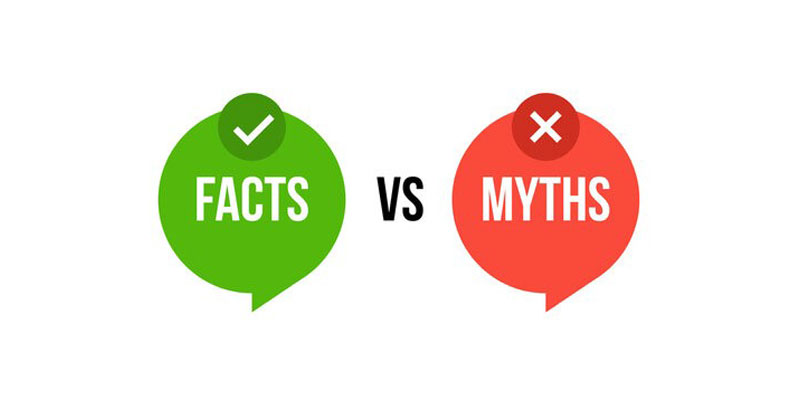Breast cancer is a disease that scares many people, and because of that, there are a lot of myths or false ideas about it. These myths can cause confusion, worry, and may stop people from getting the help they need. Let’s talk about some of the most common myths about breast cancer and the truth behind them.
Myth 1: Only older women get breast cancer.
Truth:
Breast cancer can happen at any age. It’s true that older women (above 50) are at higher risk, but young women can get breast cancer too. In fact, some women in their 20s and 30s have been diagnosed. Even men, though rare, can develop breast cancer.
What this means is no matter your age, it’s important to regularly check your breasts and go to the doctor if you notice any changes. Early detection saves lives.
Myth 2: A lump in the breast always means cancer.
Truth:
Not all lumps are cancer. In fact, most lumps are harmless and could be things like cysts (fluid-filled sacs) or fibroadenomas (non-cancerous growths). However, it’s important to never ignore a lump. If you find one, visit your doctor so they can check it properly. They may do a physical exam, an ultrasound, or a mammogram to figure out what the lump is.
Remember, early detection is key. If it’s cancer, finding it early can lead to better treatment options. If it’s not cancer, then you’ll have peace of mind.
Myth 3: If no one in my family has breast cancer, I won’t get it.
Truth:
While having a family member with breast cancer can increase your risk, most people who get breast cancer do not have a family history of the disease. This means even if no one in your family has had breast cancer, you can still develop it. Other things like age, lifestyle, and environmental factors can play a role too.
That’s why regular self-checks and medical screenings are important for everyone, no matter their family background.
Myth 4: Wearing a bra causes breast cancer.
Truth:
There is no evidence that wearing a bra, no matter the type (underwire or not), can cause breast cancer. Some people think that bras stop blood flow or block toxins from leaving the body, but this is not true. Breast cancer is caused by changes in the cells inside the breast, not by what you wear on the outside.
It’s always good to be comfortable, but you don’t need to worry that your bra is causing harm.
Myth 5: Breast cancer only happens to women.
Truth:
While breast cancer is much more common in women, men can also get breast cancer. Men have small amounts of breast tissue, and they can develop cancer in that tissue. It’s rare, but it happens.
Men should also be aware of changes in their chest area, like lumps, swelling, or discharge from the nipple, and get them checked by a doctor if they notice something unusual.
Myth 6: Using deodorant or antiperspirant causes breast cancer.
Truth:
There is no strong evidence linking deodorants or antiperspirants to breast cancer. Some people think that the chemicals in these products are absorbed through the skin and can cause cancer. However, scientific studies have not found any proof of this.
You can use your deodorant without fear. The most important thing is to focus on known risk factors like family history, lifestyle, and age, rather than unproven ideas.
Myth 7: Breast cancer always comes with clear symptoms.
Truth:
Sometimes, breast cancer doesn’t show any symptoms at all. This is why regular screening tests like mammograms are so important, especially for women over 40 or those at higher risk. A mammogram can find breast cancer even before you feel any lumps or notice any other changes.
It’s important not to wait for symptoms to show up. Regular self-exams and medical screenings can catch breast cancer early when it’s easier to treat.
Myth 8: Only people with large breasts get breast cancer.
Truth:
Breast size has nothing to do with your risk of breast cancer. Cancer can develop in small breasts, large breasts, or even in men’s small amounts of breast tissue. What’s more important is being aware of changes in your breasts, regardless of their size.
Everyone, no matter their breast size, should be proactive about breast health by doing self-exams and getting regular check-ups.
Myth 9: If I eat healthy and exercise, I won’t get breast cancer.
Truth:
While a healthy lifestyle can help reduce the risk of many diseases, including some types of cancer, it does not completely prevent breast cancer. Eating well and exercising can lower your risk, but they don’t guarantee that you won’t get the disease.
Even healthy people can get breast cancer, which is why it’s so important to get regular check-ups and listen to your body.
Myth 10: Breast cancer always leads to death.
Truth:
Breast cancer is not a death sentence. Many people survive breast cancer, especially when it is found early and treated quickly. Thanks to advances in medicine, treatment options like surgery, radiation, and chemotherapy are saving lives every day.
Survivorship rates have gone up in recent years, and many women live long, healthy lives after breast cancer. Early detection, regular screening, and proper treatment are key to survival.
Conclusion
There are many myths about breast cancer that can cause unnecessary fear or prevent people from seeking help. The most important thing to remember is that knowledge is power. By understanding the truth behind these myths, you can take control of your health and help others do the same.
Don’t let myths stop you from caring for yourself! Regular self-exams, doctor visits, and screenings are the best ways to catch breast cancer early and increase the chances of successful treatment.

